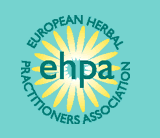 |
|
 |

Herbal Medicine - History
Herbal medicine is among the most ancient forms of treatment known and the medicinal use of plants is common to all cultures and peoples of the world. The Egyptian Ebers Papyrus, dating back to 1500 BCE, describes more than 700 herbal remedies including aloes, caraway seeds, castor oil and squill. A medical manuscript, Wu Shi Er Ming Fang, dating from 2nd century BCE listing some 224 herbal medicines was discovered in 1973 in a tomb at Ma Huang Dui in Hunan Province, China. The Atharva Veda dating from about 1200 BCE is recognised as a major source book laying down the precepts of Ayurveda, the ancient system of medicine from India. There was significant exchange of herbal knowledge in the ancient world. Hippocrates, "the father of medicine", was tutored by Egyptian priest doctors. Dioscorides, a Greek doctor attached to the Roman armies of Claudius and Nero, compiled ancient and contemporary herbal knowledge in his famous herbal De Materia Medica that for more than thirteen centuries remained one of the principle medical textbooks throughout the civilised world. The Greek herbal achieved its final form in the work of Claudius Galen who was physician to the Roman Emperor, Marcus Aurelius.
The medicine of medieval Europe was significantly advanced by herbal skills brought back to Europe by the Crusaders who learnt their medicine from their Arab adversaries who had themselves synthesised the knowledge of ancient Greek and Persian medicine.
More info